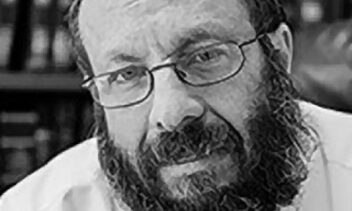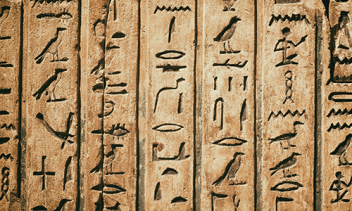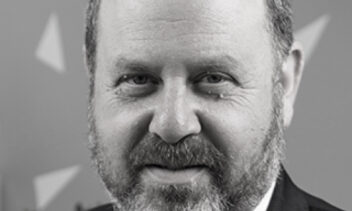Our latest guest to speak about science and religion was Rabbi Meir Triebitz. A seasoned lecturer, thinker, and Rosh Yeshiva, Rabbi Triebitz has the rare distinction of leading a yeshiva in addition to receiving a PhD in physics from Stanford. We spoke with Rabbi Triebitz about the Talmud, science, and his own background. Because some of his thought can be dense, we did our best to unpack one of our favorite moments in conversation with him. This short episode should give you a window into a great intellectual mind of our generation.
Superimpose the Talmudic World Onto Our Own
One of the major challenges that threatens contemporary readers of the Talmud is the conflicts between Talmudic assumptions or accounts and contemporary science. This arises in topics such as medicine, astronomy, astrology, biology, and the natural world, all of which the Talmud weighs in on directly or subtly in ways that doesn’t shtim (fit) with contemporary science.
… what matters isn’t what the science says about the Talmud, nor what the Talmud says about science, but rather how the sages of the Talmud would see science.
Although we dealt earlier with what we thought the main perspectives on how to deal with this conflict were, Rabbi Meir Triebitz’s iconoclastic, creative approach escaped our attention. This is a statement of how Rabbi Triebitz’s perspectives are often deeply his own, and different “because they are special,” as one appreciator put it on Twitter. Here’s how he explains it, in his conversation with 18Forty:
Rabbi Triebitz: Science is a human activity. Man is supposed to learn the Oral Law in terms of the Mesorah, the tradition, that we have from the sages, and man should not think that the Gemara, the sages, are privy to this ultimate scientific truth. Which serves as the basis of the Torah, but this is not man’s road, this is what man does. So in my opinion, there’s science. According to the Torah, science is very much a human activity.
The Torah, Chazal, the tradition of Chazal are communicating the d’var Hashem, the tradition of the Oral Law. Not only Oral Law, but Chazal was speaking in terms of the science of their day. And this is explained by the Chazon Ish, he speaks about this when he speaks about the laws of treifus, animals which are rendered forbidden to be eaten because they’re missing things which they won’t be able to live very much longer, that Chazal in fact actually decided halachic issues are based upon their science, and we shouldn’t think that Chazal were privy to all the advances of science that we have today. That’s a very, very important thing.
David Bashevkin: So if I understand you correctly, there’s this notion that there’s this supernal, transcendent Torah that we don’t necessarily have access to when we open up to interpret the Mishna or the Gemara. And maybe that was the Torah that reflects all of the truths of the world, but the Torah we have in front of us is much more narrow in its focus of what it’s coming to resolve?
Rabbi Meir Triebitz: Right, right. And that’s why it’s very important.
In Rabbi Triebitz’s complex thought, what matters isn’t what the science says about the Talmud, nor what the Talmud says about science, but rather how the sages of the Talmud would see science. For clarification, he raises a halachic debate between two great rabbinic legal minds of the 20th century: Rabbi Shlomo Zalman Auerbach and the Chazon Ish on the topic of electricity. The Chazon Ish believed that using electricity is prohibited on Shabbos, as closing a circuit is ‘building,’ and as such was prohibited as ‘building’ is a broad category prohibited under Jewish law. Rabbi Shlomo Zalman Auerbach disagreed based on his understanding of physics. To Reb Shlomo Zalman, as he is affectionately known, using electronics triggers a flow of electrons, which he thought was analogous with turning on a faucet of water, which is not considered ‘building.’ The Chazon Ish’s response is fascinating. In Rabbi Triebitz’s words: “Yeah, but don’t you understand that the instrument is going misa l’chayim, from death to life, it’s like it’s coming alive.”
If you are feeling confused about some of this, that is natural and we are here for you. This helpful introductory article provides a big picture into what the questions are about electricity on Shabbos. For more about this debate, this article provides a window into the legal issues of this concept.
Back to Rabbi Triebitz—here is his thoughtful commentary on this disagreement:
Rabbi Meir Triebitz: So what I understand from the massa umatan from Reb Shlomo Zalman as the following thing: It might be that in modern physics, if I ask you to describe electricity, you would speak about the flow of electrons. The question is, if you turned on a fan in front of Ravina and Rav Ashi what would he say? Ravina and Rav Ashi didn’t know quantum physics, Ravina and Rav Ashi would see an incredible thing. You have metal here, and then the metal comes alive. So the Chazon Ish was telling Reb Shlomo Zalman Auerbach, we can’t judge and try to understand Chazal in terms of modern science. If you want to understand the da’as Torah, the legal opinion of Chazal on different issues, we have to place ourselves in the position of Chazal, and what would Chazal say about this thing? That’s what the Chazon Ish was saying to Reb Shlomo Zalman.
David Bashevkin: Fascinating. We have to superimpose the conceptual world of the Gemara onto modern day phenomena to assess its implications.
This is not a question of fact but a question of narrative, of perception. While these ideas are dense, we approach Rabbi Triebitz’s words as an introduction to his deep thinking, rather than a comprehensive portrayal of them.
Extra material for the curious
Rabbi Triebitz’s thought is far from accessible to many outside of his institutions. If his words fascinate or curiousate you, here are some resources to more of his contributions to Jewish thought. Use them wisely. At Hashkafahcircle.com you can find a stunning array of content, from the weekly parsha to his thoughts on the canonization of the Talmud. For a more academic feel, check out https://independent.academia.edu/RabbiTriebitz, where you’ll find articles on philosophy, the Rambam, and Rabbi Soleveitchik. We particularly recommend the latter offerings, as the interplay between these two great minds is riveting, although complex. His article in Hakirah on the Rav’s lectures on Genesis are another must-read in this intellectual interaction. Find that here.








